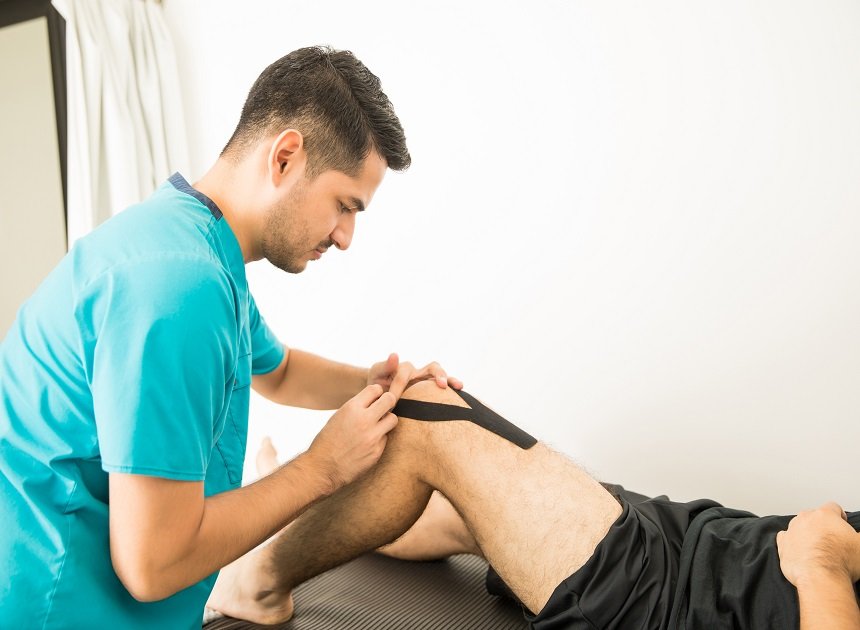Suffering from a muscle injury? Regardless of how active we are in our lives, no one is immune to this. The only possible way to get rid of these issues is by opting for timely and reliable muscle injury treatment in NJ. A muscle injury usually occurs when it gets overstretched or tears due to excessive use or improper movement. A muscle strain can cause swelling, weakness, and pain, and even restrict your movement, thus making it difficult to perform even the simplest of tasks.
Athletes are more prone to muscle lesions, and they comprise at least 10 to 55% of all injuries. Proper recovery is important to prevent the muscle from being damaged any further. By following the right treatment plan, you can recover without going for surgery.
What will you learn?
- What is Muscle Injury?
- Causes of Muscle Injury
- Symptoms of Muscle Injury
- Effective Treatment Options for Muscle Injury
- How to prevent future injuries
What is Muscle Injury?
A muscle injury occurs when muscle fibers are overstretched or torn due to physical strain. These can vary from minor discomfort (Grade I) to major muscle tears (Grade III) that reduce mobility.
Muscle injury is prevalent among athletes, busy people, and even those engaging in daily activities such as lifting heavy bags improperly. Either a minor strain or a major tear, prompt diagnosis and management lead to complete recovery.
Causes of Muscle Injury
No single cause results in a muscle injury. Instead, there is a range of activities or conditions that lead to it: Some of the most common are:
- Overuse or repetitive motion: Continuous usage without sufficient rest leads to chronic strain.
- Sudden or jerky movements: Sudden starts, stops, or twists tend to overstretch the muscle.
- Poor technique: Lifting incorrectly or performing exercises improperly increases the risk.
- Inadequate warm-up: Cold muscles are more susceptible to injury when suddenly subjected to stress.
- Fatigue: Weakened muscles by fatigue are less capable of withstanding physical stress.
Symptoms of Muscle Injury
Identifying the signs earlier will prevent worsening. Some usual signs of a muscle strain are:
- Pain on movement or rest that is sharp or dull
- Swelling and redness at the site of injury
- Stiffness or weakness of the muscle
- Restricted movement
- Bruising or color change is visible
- Spasm or cramping of the muscle
Severe ones can lead to loss of function, a gap at the site of the muscle, or severe pain when moving the joint related to the injured muscle.
Effective Treatment for Muscle Injury
In most cases of mild to moderate muscle injuries, symptoms typically resolve with standard muscle injury treatment in NJ. Consider the following approach, which is often recommended:
RICE (Rest, Ice, Compression, and Elevation)
RICE remains the primary guideline for the initial 24 to 72 hours post-injury.
- Rest: Refrain from using the affected muscle to prevent further aggravation of the injury.
- Ice: Use ice packs for 15–20 minutes, repeated frequently to reduce swelling and numb pain.
- Compression: Use elastic bandages to limit inflammation and stabilize the injured part.
- Elevation: Elevate the injured limb above heart level to limit fluid accumulation.
RICE is beneficial when used right away after trauma, helping to speed healing and lower complications.
Physical Therapy
After the initial phase of a muscle injury is over, physical therapy becomes necessary to speed up the healing process. A qualified therapist will guide you through gentle exercises that strengthen and stretch, helping to increase flexibility. They may also apply special techniques like massage or ultrasound therapy to stimulate the flow of blood and speed up healing.
Exercising and Stretching
You can try light stretching to aid in regaining lost flexibility and prevent muscles from stiffening. Low-impact activities like walking or swimming promote blood flow and keep muscles active. Once the strength returns, light strength training may be introduced to strengthen muscle integrity.
Staying Hydrated
Gentle stretching aids in restoring lost flexibility and avoids stiffening or shortening of the injured muscle during recovery. Low-impact exercises such as walking or swimming stimulate blood circulation and maintain active surrounding muscles. Once the strength returns, light strength training may be introduced to strengthen muscle integrity.
Nutrition for Faster Healing
The key to muscle repair is proper nutrition. With protein aiding tissue growth and healing, Vitamin C boosts collagen production, while zinc and magnesium support regeneration. Include foods like lean meats, citrus fruits, nuts, and leafy greens. You can also consult your doctor for injury treatment in NJ about the nutritional intake.
How to prevent future injuries
Prevention of muscle injury is just as crucial as the treatment. Some important tips are as follows:
- Warm-up and cool-down: Begin every physical activity with gentle exercises to loosen your muscles.
- Use the correct posture: When lifting weights or working around the house, practice correct posture and technique.
- Don’t neglect rest days: Muscles take time to recover after strenuous workouts.
- Stay flexible: Stretching regularly increases elasticity and reduces the likelihood of strain.
Bottom Line
If your muscle pain does not subside, then it is always better to seek professional muscle injury treatment in NJ at the earliest. They will investigate the matter and prescribe you some medication to relieve your pain. If you take appropriate measures and avail yourselves of treatment at the earliest opportunity, you can expect to recover sooner and avoid future injury.
No matter how minor the injury, it’s best to visit an urgent care facility near you before it worsens.

Leave a Reply